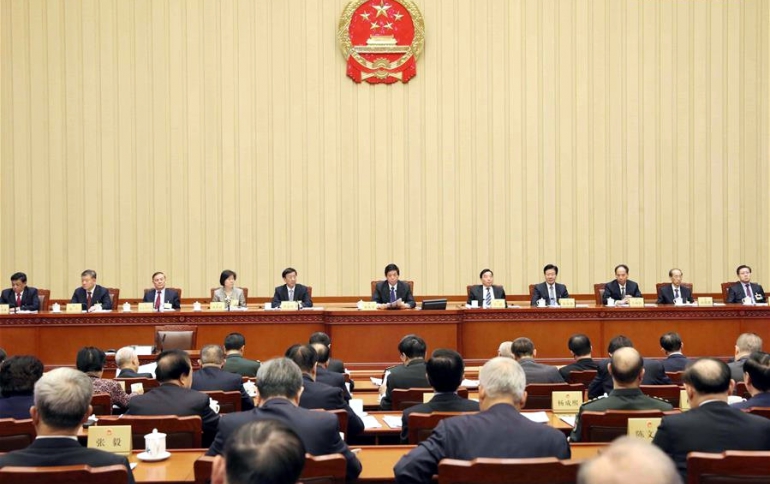
China Approves Cryptography Law to Accelerate Digital Currency Plan
China’s parliament on Saturday passed a new law on cryptography as the country gears up to launch its own digital currency.
The Standing Committee of the National People's Congress (NPC), China's top legislature, closed its bimonthly session Saturday, adopting a law on cryptography and appointing a new minister, the official Xinhua news agency reported.
President Xi Jinping signed presidential decrees to release the law and the appointment. Li Jiheng was appointed the minister of Civil Affairs.
Noting the cryptography law is a comprehensive and fundamental law in the field, Li stressed "stringent enforcement of the law to safeguard national security and public interests in accordance with the law."
The new cryptography law, which takes effect on Jan. 1, is aimed at “facilitating the development of the cryptography business and ensuring the security of cyberspace and information”, the official Xinhua news agency said, citing parliament. The law states that the state encourages and supports the research and application of science and technology in cryptography and ensures confidentiality.
China’s central bank set up a research team in 2014 to explore launching its own digital currency to cut the costs of circulating traditional paper money and allow Beijing to better control of money flow. With its own crypto project, China is trying to keep the ountry from having to adopt a standard, like Bitcoin, designed and controlled by others.
China’s proposed new digital currency would be able to be used across major payment platforms such as WeChat and Alipay, a senior central bank official said last month.
Chinese President Xi Jinping said last week that the country should accelerate the development of blockchain technology as a core for innovation.
Earlier this month, David Marcus, the executive leading the Facebook’s Libra initiative, warned that Beijing was plowing ahead in trying to stand up a digital payments system with global reach even as U.S. officials try to figure out how to regulate Facebook’s proposed Libra coin. Chinese progress could represent a real threat to U.S. influence, Marcus said .
He warned about the prospect of “having a whole part of the world completely blocked from U.S. sanctions and protected from U.S. sanctions and having a new digital reserve currency” with no alternative.
Facebook struggles to persuade skeptical lawmakers and regulators that Libra is a good idea. Facebook’s June announcement that it had begun work on the cryptocurrency along with 27 partners sparked controversy that has led to congressional hearings, reviews by global regulators.





















